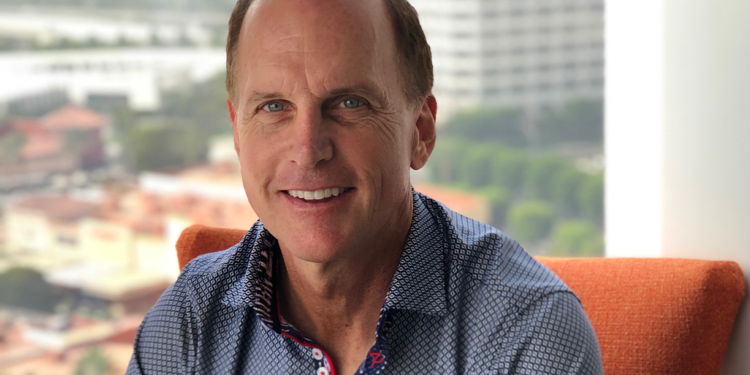At the moment of a lengthy run, the body starts to plead for mercy. It’s when the muscles cramp and weariness sets in that runners must decide whether to give up or persevere.
Chuck Goetschel, an extreme runner and serial entrepreneur, sees this “hitting the wall” sensation as a fundamental aspect of his success on and off the track.
“During a 24-hour race, after four hours of running, your feet ache, your legs ache, and you’re exhausted and want to quit,” Goetschel explains. “So how do you keep running for another 20 hours? You face yourself head-on. It’s a battle.”
The key is choosing these battles, rather than letting them choose you. Approaching extreme challenges forces Goetschel to surpass the limits of his mind and body, enabling him to access a level of grit that only extreme experiences can provide.
“In the most extreme circumstances, you have an opportunity to enhance yourself and reach another level,” he asserts. “I can’t do that by sitting on the couch. Placing myself in those extreme moments allows me to discover how mentally tough I can be and develop that tenacious spirit to a higher degree.
Problems are the answer.
These muscles have proven useful for Goetschel, who embarked on his entrepreneurial journey at age 10 and has since developed multiple businesses in various industries and markets, all requiring significant perseverance and determination. His experiences have led to the authorship of two books, The Anatomy of a Comeback and Simon Says: Living Your Life Purpose…and Not Just Following the Crowd.
Early in his career, seeking to supplement his professional athletic endeavors, Goetschel joined a company with a network marketing model and realized that, in his view, the system was outdated. To address this, he assembled a skilled team and established a replicable process. His small team grew into a $40 million global business, earning him a position on the company’s advisory board.
Following a leadership disagreement, Goetschel and a few others left the company, resulting in approximately 75,000 distributors following suit and the company suing Goetschel for $100 million—a legal battle that consumed his finances and energy for years.
“Building the first big thing isn’t too difficult, but building the second big thing when you’re bankrupt and without funds, that’s a real challenge,” he comments. “Restarting with all that pressure is perhaps the greater triumph.”
While his initial success led to financial hardship, it also revealed Goetschel’s two primary strengths: identifying problems and entrusting talented individuals with crafting solutions. As he worked to get back on his feet, Goetschel refocused on combining his abilities and passions to generate solutions that would benefit others.
For Goetschel, the answer was clear. Armed with a computer science degree and an entrepreneurial spirit, he launched an online university teaching entrepreneurs how to engage customers in the early days of the internet. Goetschel enlisted 30 professors from around the globe, and the venture seemed promising.
But then he reviewed the exit surveys from graduates.
“Nearly every graduate said, ‘Now I know what I should be doing, but I still won’t do it,’” he recalls. “I realized that’s not solving a problem; that’s just knowledge without action.”
As a solution, he founded Paradigm Marketing Alliance, producing social media content for entrepreneurs and franchise brands. However, generating all that content proved costly, prompting Goetschel to create Rallio, a social media technology platform automating formerly manual processes. The company aims to streamline social media activities and empower users to analyze details such as the most revenue-generating posts by category. Rallio’s B2B partnerships include the NOW app, offering social selling tools to solopreneurs, featuring automated sampling and digital commerce solutions.
This pattern of identifying problems within problems characterizes Goetschel’s life and business approach. He believes that it’s not groundbreaking ideas that change the world or cultivate flourishing businesses, but adept problem-solving skills.
“I believe coming up with an idea is the wrong approach,” he states. “Stop seeking ideas and start seeking solutions to problems. Dedicate your mental energy to identifying and defining problems, then devise solutions.”
“Don’t be boring.”
Rallio’s culture and operations mimic Goetschel’s extreme style. Company mugs feature the motto “Don’t be boring,” and employees are encouraged to take time off whenever necessary, as long as their work is completed. Ping-pong tables and office celebrations are standard, and executives are often selected based on talent rather than traditional qualifications. For instance, Rallio staff recruited a barista from a nearby Starbucks to join the marketing team as an intern because of his humor and quick wit. His innovative approach eventually earned him a role crafting engaging content for the team and appearing in their videos.
“I value loyalty and longevity, but promotions aren’t determined by the timing of your annual review,” he explains. “That system isn’t best for the overall team. The best scenario is for you to continuously evolve and better yourself, naturally advancing to a higher level. Advancements are based on personal growth.”
Goetschel appreciates big-picture optimism and a supportive work environment, but he also emphasizes the importance of what he terms necessary pessimism, encouraging his team to search for deficiencies and anticipate worst-case scenarios.
Juggling these contrasting extremes—a fun, inclusive workplace coupled with a heightened sense of caution—has become Goetschel’s recipe for success.
“We’re seeking exceptional individuals,” Goetschel explains. “When you assemble a group of extreme people passionate about a vision, something remarkable emerges.”


